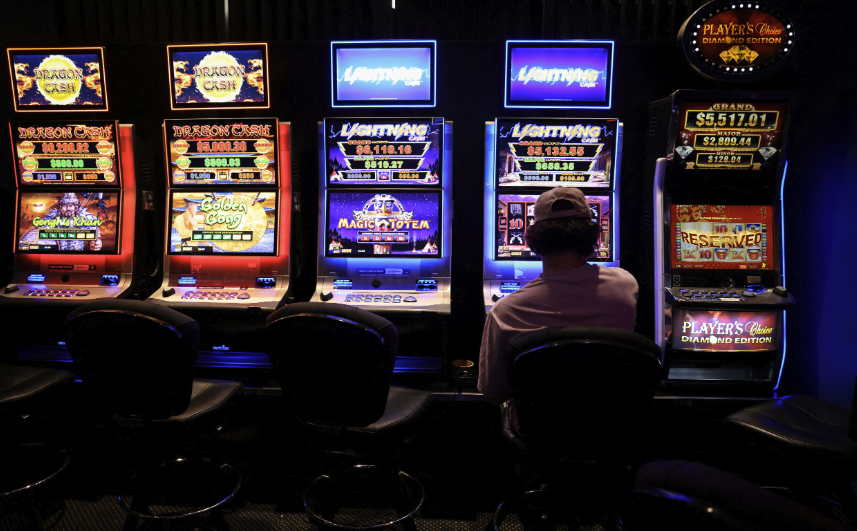In support of Poker Machine reform in New South Wales

A seismic shift is happening in the political landscape of New South Wales (NSW). With a focus on the consequences of gambling, there’s an increasing push for reform of the poker machine industry. The compelling need for change becomes clear as we consider the breadth of the issue and the proposed steps to address it.
According to a recent article in The Guardian, NSW Labor is taking commendable action to address the issues surrounding poker machines. Experts say these efforts are not only laudable but are also creating pressure on Dominic Perrottet, the Premier of NSW, to follow suit. The issue is rising to the surface of public consciousness, and it’s time we all paid more attention.
The potential harm caused by poker machines is far-reaching. They’re not just benign entertainment devices; they have the capacity to disrupt lives. Advocacy groups like Wesley Mission have been vocal about the harm caused by these machines and the need for reforms. Their campaign, ”Put Pokies in Their Place,” sheds light on the scope of the problem and how vital it is to introduce responsible controls.
I know first hand from my work with our local charity organisation SWAG Illawarra the harm that poker machines can bring to the least fortunate and their loved ones. We deal all the time with cases of the homless and those in poverty who have been impacted by problem gambling, specifically with poker machines.
When delving into the statistics surrounding gambling and poker machine losses in New South Wales (NSW), the figures are indeed sobering. As per reports from the NSW Government, the state holds the dubious distinction of having some of the highest rates of gambling in the world. In the financial year 2019-2020 alone, an estimated AUD 7 billion was lost to poker machines in NSW clubs, and another AUD 5 billion in pubs. This colossal loss amounts to roughly AUD 1000 per resident, one of the highest averages globally.
The issue becomes even more alarming when we look at the geographical distribution of these losses. Some suburbs in NSW are significantly more affected than others. For example, areas like Fairfield, Canterbury-Bankstown, and Blacktown have some of the highest poker machine losses. In Fairfield alone, losses per adult can reach a staggering AUD 3000 a year, painting a worrying picture of the scale and concentration of problem gambling. These figures underscore the pressing need for poker machine reform, particularly in these hard-hit communities.
Thankfully, we’re seeing concrete steps towards reform. In February, the NSW government, under a new Coalition plan, announced that all poker machines in the state would go cashless. As per The Guardian, this measure is specifically designed to tackle problem gambling, allowing for greater control and monitoring of individual gambling behaviour.
This cashless plan for poker machines is a significant stride in the right direction. It has the potential to lessen the ease and speed of continuous gambling, thereby reducing harm. However, it is just the start. We should not let the conversation stop here. Further steps can and should be taken to ensure the well-being of NSW’s citizens and reduce problem gambling.
There’s a growing consensus among politicians, experts, and the public that poker machine reform is not just desirable, it’s necessary. This dialogue must continue, and we must strive to support measures that address problem gambling at its roots. Let’s hope that the conversation around poker machine reform continues to gain momentum and brings about significant and effective change.
While legislative and technological changes are essential, we must not overlook the importance of education in addressing problem gambling. Public awareness campaigns can help people understand the risks associated with poker machines and provide resources for those struggling with addiction. Schools and community centers could host workshops or seminars on responsible gambling, and information about support services could be made readily available at gaming venues.
As we move towards a digital age, technology can play a crucial role in reforming the poker machine industry. The introduction of cashless poker machines is a step in the right direction, but we can go further. Advanced algorithms can be used to identify patterns of problem gambling and intervene when necessary. For instance, if a player is spending an excessive amount of time or money on a machine, the system could trigger an alert or even lock the machine temporarily. This could be a powerful tool in preventing problem gambling before it spirals out of control.
Transparency in the poker machine industry is another crucial aspect of reform. Operators should be required to disclose the odds of winning clearly, and the potential risks associated with gambling should be communicated effectively to players. This can help individuals make informed decisions about their gambling habits.
In conclusion, we support poker machine reform in NSW and hope you’ll join us in this stand. Whether it’s by talking to friends, family, coworkers, or local politicians, every voice adds to the chorus calling for change. Let’s be part of the solution.